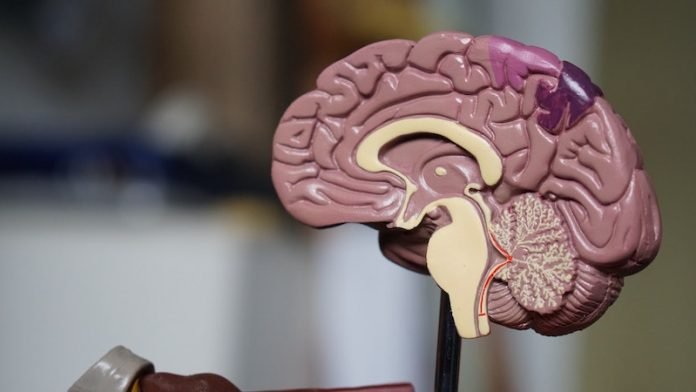
About 11% of the U.S. population 65 and older has been diagnosed with Alzheimer’s disease (AD), the most common form of dementia that results in memory loss and cognitive impairment, according to the Alzheimer’s Association.
Scientists from the Case Western Reserve University found a key protein molecule plays a major role in the accumulation of brain cholesterol, triggering the development of Alzheimer’s.
The research is published in Nature Communications and was conducted by Xin Qi et al.
The team developed and patented a peptide inhibitor earlier in hopes of treating AD and Huntington’s disease.
AD is an age-related neurodegenerative disorder that results in progressive cell death, leading to memory loss and cognitive dysfunction.
Risk factors that contribute to AD include vascular diseases that impact the heart and blood vessels.
While some risk factors are well known—aging, for example—others, such as brain cholesterol, play a key role in understanding how the disease develops.
Brain cells communicate through cholesterol-rich cell membranes, a process that occurs naturally and is essential for healthy brain function. Research shows the brain contains 23-25% of the body’s cholesterol.
The team says cholesterol accumulates in the brain and causes damage to the neuron—it’s long been understood as playing a role in Alzheimer’s disease pathology.
The paper is the result of more than five years of research into the role of brain cholesterol and its relationship with AD.
The researchers gathered data by analyzing models and found a pathway linking ATAD3A and brain cholesterol.
The researchers found that once ATAD3A forms by repeating similar or identical parts through a process called oligomerization, it suppresses another protein called CYP46A1.
The new protein then prevents cholesterol from being metabolized in the brain, meaning it accumulates.
Researchers have linked the accumulation of brain cholesterol to disease progression in neurodegenerative diseases.
The team says models treated with the peptide showed improved performance on the memory tests. They showed increased memory retention, stronger cognitive activity and up to 50% restored damage to the memory.
This means that targeting ATAD3A oligomerization can likely slow the progression of Alzheimer’s disease. Further testing is underway.
Sign up for our newsletter for more information about this topic.
If you care about Alzheimer’s disease, please read studies about a new way to prevent Alzheimer’s disease, and medical cannabis can reduce this brain disorder.
For more information about brain health, please see recent studies about 13 things your doctor can check to help protect brain health, and results showing this antibiotic drug may effectively treat common dementia.
Copyright © 2022 Knowridge Science Report. All rights reserved.



